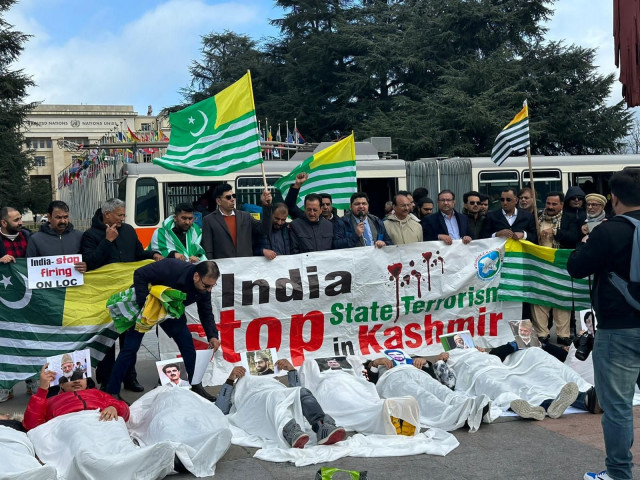The Kashmir issue remains a highly contentious and emotive subject, not only for the parties directly involved – India and Pakistan – but also for the international community. The recent escalation of events in Indian-Occupied Kashmir (IOK) underscores the complexities and ongoing challenges faced by the region.
The Indian government's recent actions, including the banning of Tehreek-e-Hurriyat Jammu and Kashmir (TeH) and other political parties, have been a significant point of contention. This move is seen as part of a broader pattern of political suppression in the region. While India cites national security concerns, however, these bans serve to silence dissent and marginalise voices critical of the administration. The clampdown on political parties and activists, who are instrumental in voicing local concerns and aspirations, is a worrying sign of eroding democratic values in IOK.
The application of laws such as the Unlawful Activities Prevention Act (UAPA) to curb dissent raises significant concerns about the state of democracy in IOK. The suppression of political dissent and the lack of space for political dialogue are antithetical to the principles of democracy. The erosion of democratic institutions and processes risks delegitimising the political system and deepening the sense of alienation among its people.
The human rights situation in Kashmir has increasingly come under international scrutiny. Instances like the handling of Syed Ali Shah Geelani's death, where his family was allegedly denied the right to conduct a traditional funeral, are seen as indicative of a broader disregard for basic human rights in the region. Reports of detentions without trial, restrictions on freedom of expression and lack of accountability for human rights violations have fuelled resentment among the local populace and drawn criticism from international human rights organisations.
Beyond the political and human rights issues, the conflict in Kashmir has profound socio-economic implications for its people. The constant state of unrest and instability has hindered economic development, leading to high unemployment rates and poor living conditions. The psychological impact of the conflict on the Kashmiri populace, especially the youth, is also a matter of great concern.
This situation in Kashmir has significant implications for regional stability in South Asia. The longstanding rivalry between nuclear-armed neighbours (India and Pakistan) makes the resolution of the Kashmir issue not only a regional but also a global concern. The international community, particularly countries with strategic interests in South Asia, need to play a more active role in encouraging a peaceful resolution to the conflict.
The Kashmir issue is further complicated by the obligations and commitments under international law, including UN Security Council resolutions that call for a plebiscite in the region. The non-implementation of these resolutions and the perceived unilateral actions by India in IOK are points of significant international concern. The disregard for these resolutions is often cited by Pakistan and Kashmiri groups as evidence of India's unilateral approach to handling the Kashmir issue.
The need for a peaceful resolution to the Kashmir conflict through dialogue has never been more critical. This requires meaningful engagement between India and Pakistan, with the active involvement of the Kashmiri people. International mediators, such as the United Nations, could be instrumental in facilitating this dialogue. Ensuring adherence to international law and respect for human rights should be the cornerstone of any resolution process.
In conclusion, the situation in Kashmir represents a complex interplay of political, human rights and socio-economic issues. The resolution of the Kashmir conflict requires a nuanced understanding of these challenges and a concerted effort from all stakeholders, including India, Pakistan, the Kashmiri people and the international community. The path to peace and stability in Kashmir is fraught with difficulties, but navigating these challenges with a commitment to democracy, human rights and international law is essential for the long-term prosperity and well-being of the region. The journey towards a peaceful Kashmir might be long and arduous, but it is a necessary path that must be pursued with diligence and empathy for the sake of regional stability and the future of its people.



COMMENTS
Comments are moderated and generally will be posted if they are on-topic and not abusive.
For more information, please see our Comments FAQ